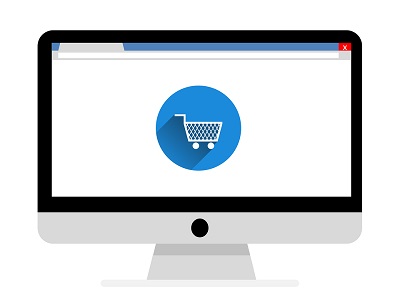UK online shoppers make 87 per cent of their retail purchases online, up from 80% in 2017, marking an increase of almost nine per cent year on year, according to Royal Mail’s Delivery Matters report.
The rise is largely driven by the pursuit of value for money as consumers continue to look around online for the best deals and prices.
On average, UK online shoppers spend £34 on each online transaction. This is similar to 2017 figures (£38).
Laptops are the device most commonly used for online shopping in the evening. Smartphones are most likely to be used at all other times of the day.
Use of social media sites to shop online is on the rise. Over one in five (22 per cent) UK consumers has purchased an item after seeing something on social media. Younger shoppers (48 per cent), women (29 per cent) and those living in urban areas (38 per cent) are significantly more likely to have purchased items after seeing posts on social media.
The study also found that men typically spend more online than women. On average, men spent £255 online over a period of three months, whereas women spent £204. Younger shoppers also typically buy online more frequently than shoppers of an older age. On average, those aged between 18-54 years purchased seven items, compared to six for those over the age of 55 years old, in the same three month period.
When shopping online, laptops are the device most commonly used in the evening, while smartphones are most likely to be used at all other times of the day. Since 2017, smartphone usage has increased in all locations. 78 per cent now use their smartphone for online shopping whilst travelling or commuting, up from 71 per cent in 2017. Almost half (45 per cent) of UK shoppers like to browse online in their free time and 44 per cent of UK shoppers find it cheaper to buy online than in-store.
A spokesperson for Royal Mail said: “The growth of online retailing is driving a relentless pursuit of value for money. People continue to look online for the best deals and prices and this is driving the proportion of money being spent online, which has increased for the second year in a row. Retailers of all sizes must ensure they are responding to the ever changing digital landscape alongside trends in online shopping behaviour being led by younger shoppers.”
Amit Sharma, CEO of retail loyalty firm Narvar shared his insight into how retailers and brands can improve the customer experience and boost loyalty.
“Brands and retail businesses which fail to recognise the importance of customer experience beyond the buy button will miss a trick in retaining, engaging, and delighting the growing online shopping community,” Sharma said. “Passing post-sale communications over to a third party, such as a delivery service, is one key place where customer experiences fall short for online shoppers. The retailers and brands who will ‘win’ when it comes to online and those that will secure real brand loyalty (i.e. see customers return for more) will be those providing authentic, branded, convenient and personal communications to customers in all stages of the buyer journey – including the delivery and returns process.”

